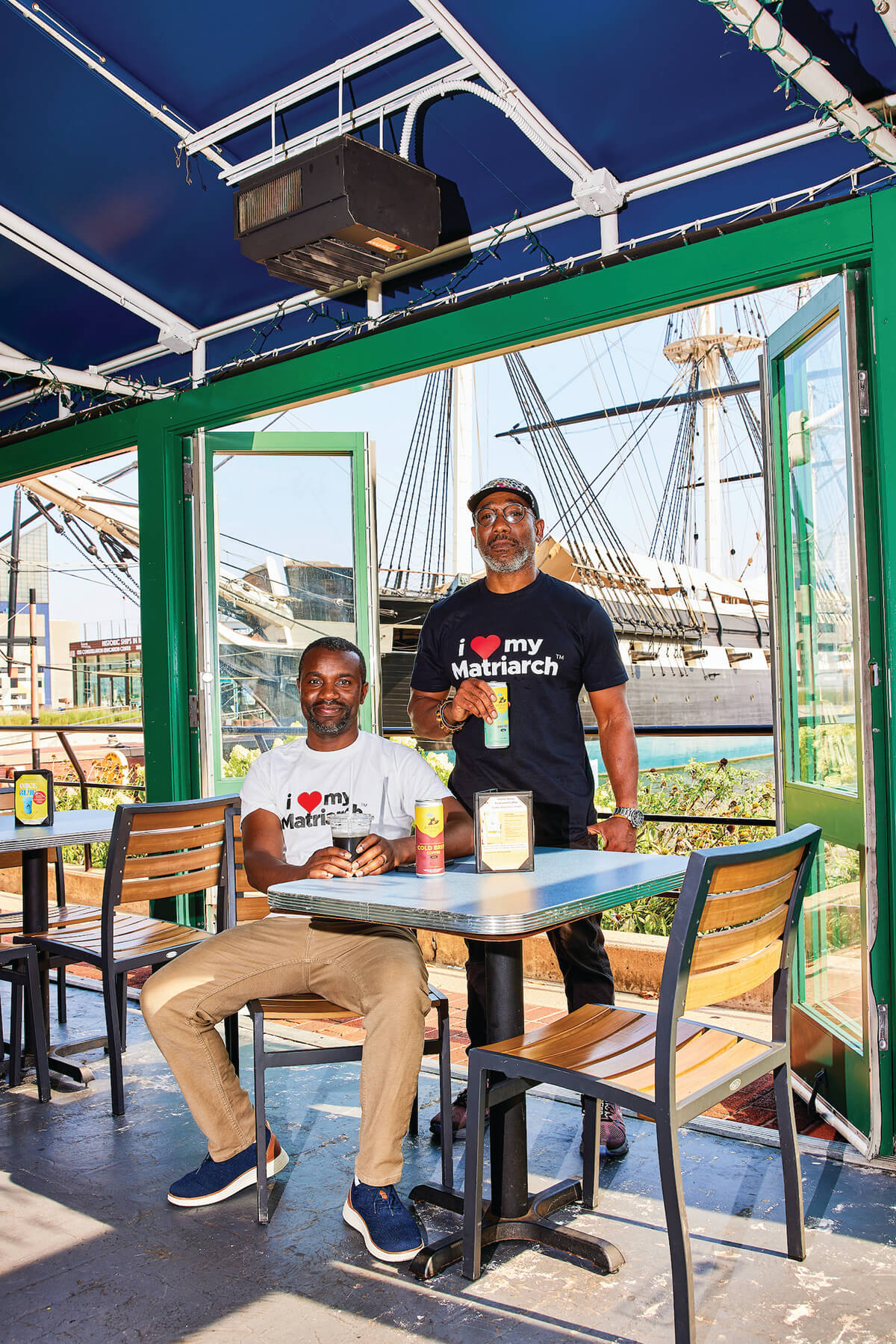Food & Drink
Matriarch Coffee Honors Co-Owner’s Family Farm in Rwanda
Hopkins epidemiologist Jean Christophe Rusatira started the Inner Harbor cafe to share the results of his parents’ decades-long farming legacy directly with his new community.

Jean Christophe Rusatira hails from a family of proud Rwandan coffee farmers. For more than 30 years now, his parents, Marie Mukamurenzi and Celestin Rumenerangabo, have toiled on Gasharu Farms to help their family and to rebuild the region on the border of Rwanda and the Democratic Republic of Congo. But another reason his parents worked so hard is so that their nine children would be able to attend school and have options beyond the farm.
“Growing coffee is a very laborious process,” says Rusatira. “You are farming for the whole year and you only have three months to farm. If there’s rain or a heat wave, the whole year is done. My dad, who planted his first coffee trees in [the district of] Nyamasheke when he was 17, loved farming but he wanted all of us to get educated.”
It worked. Rusatira is now an epidemiologist at Johns Hopkins Bloomberg School of Public Health. But it’s safe to say that beans were in his blood. In 2019, after meeting his business partners—Baltimore-born Michael Saunders; Ernest Asiedu, who hails from Ghana, and Dulani Christian, a native of St. Thomas—he opened Matriarch Coffee.
The Inner Harbor cafe is an homage not only to Rusatira’s mother, who left a teaching job to help on the farm, but to all the strong, influential women in the owners’ lives.
“The name was inspired by all the women who surrounded us,” says Rusatira. Saunders notes there was an additional inspiration. He says, “Ask any African American where the homeland is, and they’ll say, ‘Mother Africa.’”
Why did you want to open Matriarch Coffee?
Jean Christophe Rusatira: For me, the main motivation was to see the work of my parents’ farming directly reaching the customer, especially because I was moving from Rwanda and coming to Baltimore—Baltimore is basically my new home. It made sense for me to connect in the community and really be part of that generational wealth space. When you’re a farmer, you are technically farming for other people who are going to do the business, so it’s not an easy process to be part of the farming and also be a part of the business as a way to create wealth.
What’s it like to see your coffee beans come here from your country? It must be emotional.
Rusatira: The journey of the coffee starts a good three months from the time it leaves Rwanda. We ship one to two containers at a time. One container is 19 tons—that’s 42,000 pounds. We use some and sell some to other roasters—but I only sell it to people who appreciate it. Otherwise, I tell them to bring it back.
How would you describe what this coffee tastes like?
Saunders: Our motto is from soil to cup—we have the best quality control with Chris’ family in Rwanda, and then you bring it right to my home port in my city. I don’t know if they are singing to the beans at night, or talking to the plants, but I can’t sing enough praises about what they are doing. For me, as someone who is just a coffee lover, there’s an array of notes from chocolates to berries to melons to the apples and pineapples inside of it, but it’s the finish—smooth to the last drop—that makes the difference.
Rusatira: I always say our coffee is coffee that never wants you to put sugar in it and should taste good whether hot or cold—if you have those three elements then you are probably having good coffee.
Saunders on Rusatira’s family of coffee farmers in Rwanda: “I don’t know if they are singing to the beans at night, or talking to the plants, but I can’t sing enough praises about what they are doing.”
Michael, what does it mean for you to have this cafe in your city?
Saunders: To have a Black-owned local coffee shop as a native Baltimorean who is also roasting beans directly imported from Africa is incredible.
What should a first-time customer order?
Saunders: Start with a simple cup of coffee—if you like coffee, taste coffee. If you like lattes, taste a basic espresso, then once you’ve done that, try a cold brew.
Jean Christophe, did you grow up drinking a lot of coffee?
Rusatira: Growing up in Rwanda, we don’t necessarily drink coffee. I grew up being told that coffee beans were sold abroad to make bullets! Everyone thought that was a thing. I think they told us that to keep us from drinking the profits. But in 2016, when I came here to do my master’s in public health, I was tired and really struggling because of the weather. A colleague told me to drink coffee. So, I went to a local coffee shop, bought a cup of coffee, and I realized it really helped.